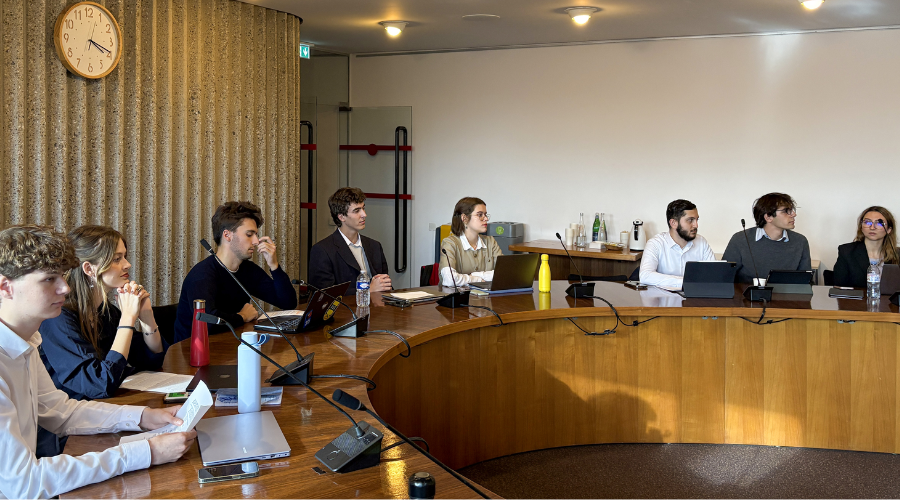
Policy Feedback in Climate Governance: Evidence from a Cross-Country Analysis on Environmental Expenditure and Public Perceptions in the EU
9 November 2025
Issue 3 of the Sciences Po Energy Review
13 November 2025The inaugural EIB Climate Survey Hackathon brought together students from Sciences Po, the University of Toronto, and the University of British Columbia to analyse real data on public perceptions of climate change collected since 2018. The initiative was co-organised by the European Chair for Sustainable Development and Climate Transition at Sciences Po and the European Investment Bank (EIB) in collaboration with the CARE Program.
The event fostered innovation and collaboration, enabling participants to address climate challenges through evidence-based insights. Opening remarks were delivered by Nancy Saich, Chief Climate Change Expert at the EIB, who highlighted the strong climate awareness among today’s students and the value of bringing diverse academic perspectives to the analysis. Drawing on her long-standing involvement with the EIB Climate Survey, she noted that across countries and questions, public recognition of climate change remains consistently high—even if opinions differ on the best solutions or responsibilities.
Nancy also placed the discussions in the context of the broader global transformation: the green transition alongside the rapid rise of artificial intelligence. She emphasised that, as in previous industrial revolutions, countries that invest in new technologies and future-focused sectors are the ones that ultimately thrive. With political cycles often favouring short-term priorities, she stressed the importance of demonstrating that climate investments deliver tangible benefits today. She also underscored the policy value of the hackathon, noting that insights from the students’ work can help identify climate measures that citizens are most likely to support—critical evidence to guide decision-makers.
Ambroise Fayolle, Vice-President of the EIB Group, highlighted the importance of engaging young researchers in climate analysis: “The EIB was among the first institutions to conduct large-scale opinion research on climate, and its results have helped shape public debate. Now, by putting this data in the hands of talented students, we invite a new generation to bring fresh perspectives and deepen our understanding of how citizens view climate change — and how policy can respond.”
Marc Ringel, Chairholder of the European Chair for Sustainable Development and Climate Transition at Sciences Po and CARE Scientific Committee member, praised the high calibre of the student work: “All student groups went the extra mile. They have shown an outstanding capacity to pick relevant topics, extract the right questions from the survey, and combine them with secondary data from other scientific datasets.”


